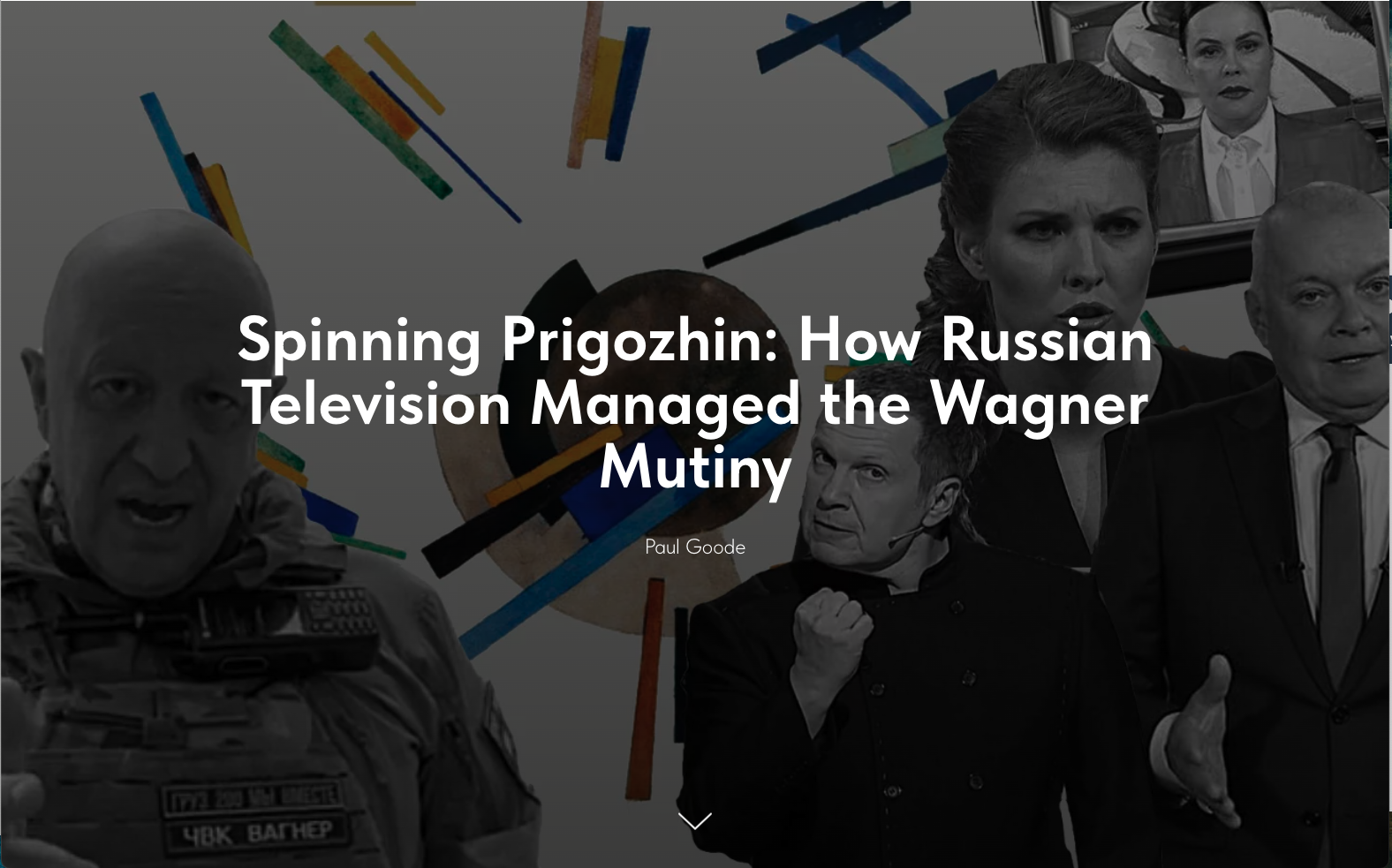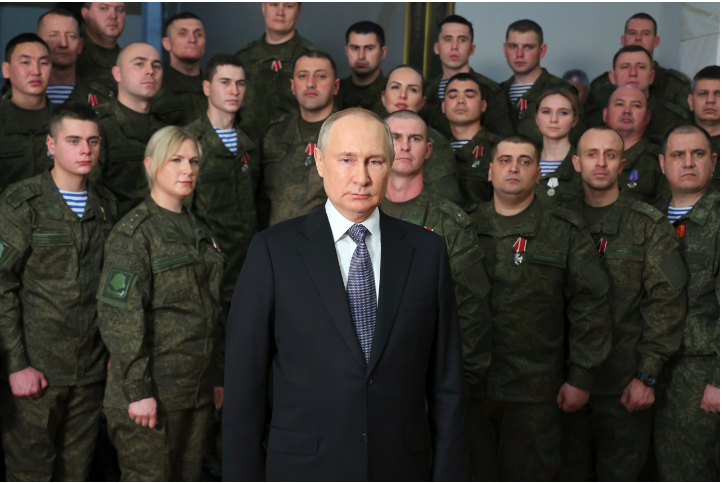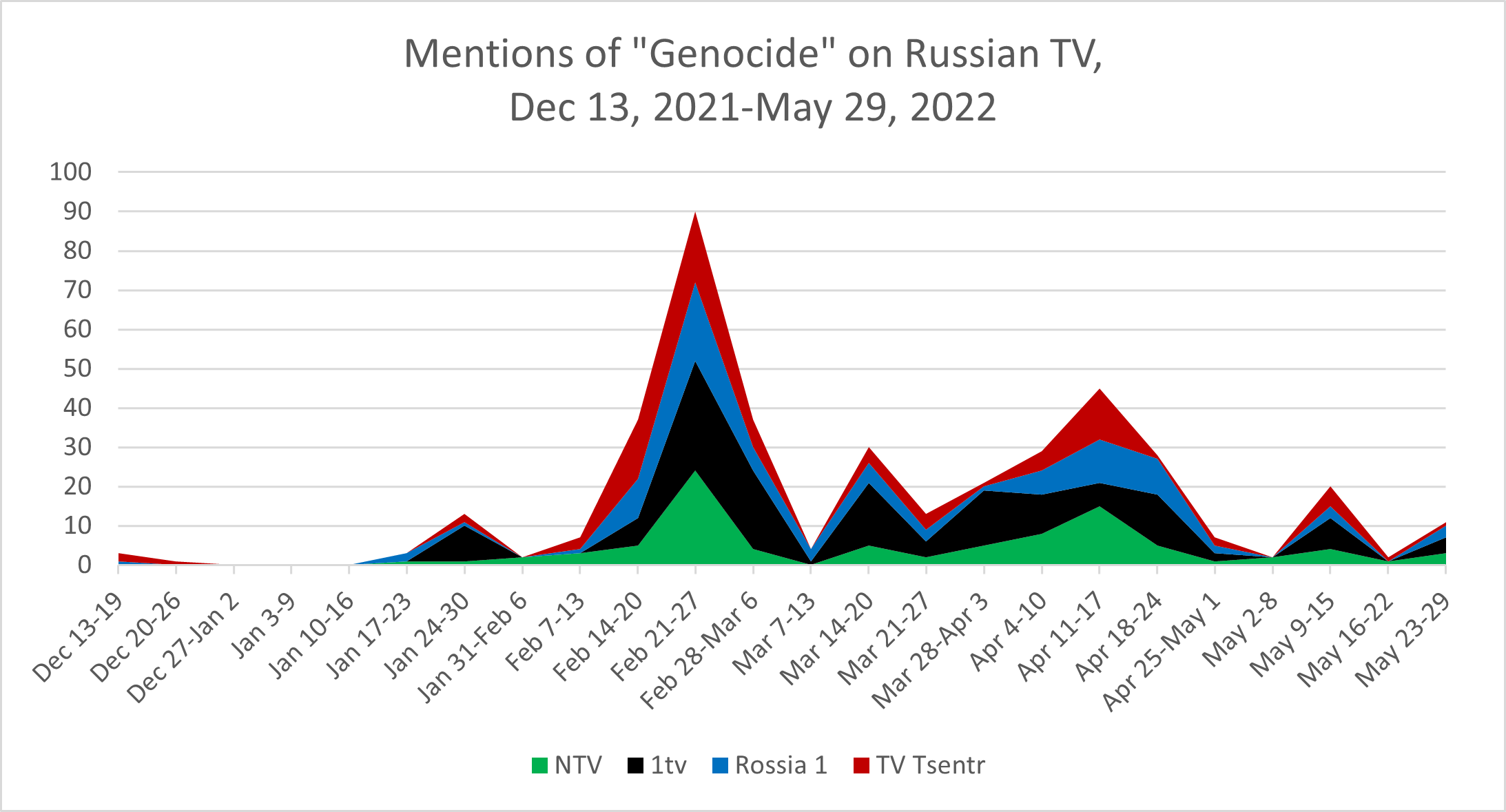Spinning Prigozhin: How Russian Television Managed the Wagner Mutiny
Russian state television’s nightly news on June 23, 2023, treated viewers to routine stories about foiled plots against Russia, Russian Army successes in Ukraine, breakthroughs in Russian medical science, backfiring Western sanctions, Russophobia on the march in Ukraine, Russian military academy graduation ceremonies, record-setting performances of Russian soldier-athletes, and highlights of domestic tourist destinations. Overnight, a situation has been developing around the claim by Yevgeny Prigozhin that the Russian Armed Forces allegedly attacked the PMC Wagner rear command post. In this article, Dr. Paul Goode provides an analysis based on analysis is produced by the Russian Media Observation and Reporting (RuMOR) project at Carleton University, which uses broadcast transcripts of Russia’s national and regional television and radio provided by the Integrum.ru research service to examine the evolution of Russia’s war narratives. (The Russia Program at GW Online Papers, July 2023)
https://therussiaprogram.org/onlinepaper_5
How Russian Television Normalizes the War
While a great deal of media analysis since Russia’s full scale Ukraine invasion rightly focuses on the role and content of social networking channels related to the war, Russian broadcast television still plays a central role in framing Russia’s war for domestic consumption. Indeed, Russia’s media environment is somewhat unusual in its relation to social media: whereas social media increasingly drives the content and agendas of legacy media worldwide, Russia’s pro-government social networking accounts and channels tend to follow the lead of state media. In this article, Dr. Paul Goode discusses how the Russian Media Observation and Reporting (RuMOR) project tracks Russia’s war reporting on broadcast television. (Riddle Russia, July 2023)
https://ridl.io/how-russian-television-normalizes-the-war/
How Russian Television Prepared the Public for War
In debates about the responsibility for Russia’s invasion of Ukraine, television undoubtedly plays an important role in the public’s supporting, ignoring, or opposing the Kremlin’s war. A key aspect of this debate concerns the information environment in Russia and the kinds of news that Russians receive through the media. It is well known that most Russians get most of their news from television—a fact that likely will increase with the ongoing crackdown on foreign news and social media. Now that it seems clear that the military campaign was planned well in advance, it is worth considering how state-controlled media prepared the Russian public in the buildup to war. (PONARS Eurasia, March 2022)
https://www.ponarseurasia.org/how-russian-television-prepared-the-public-for-war/


